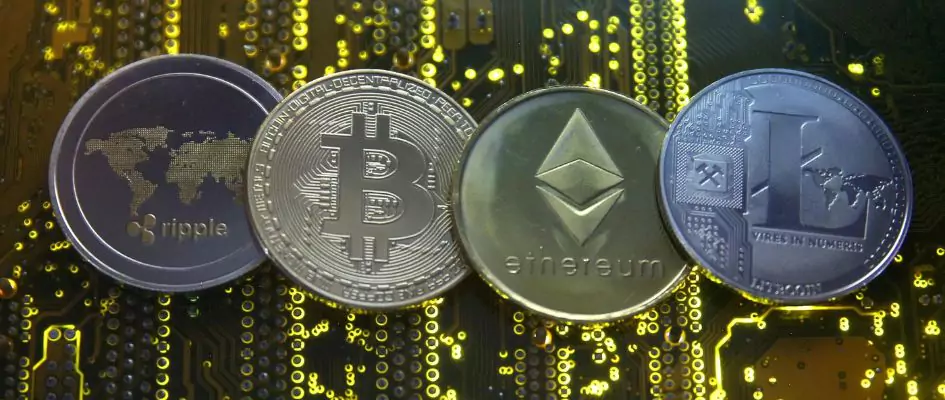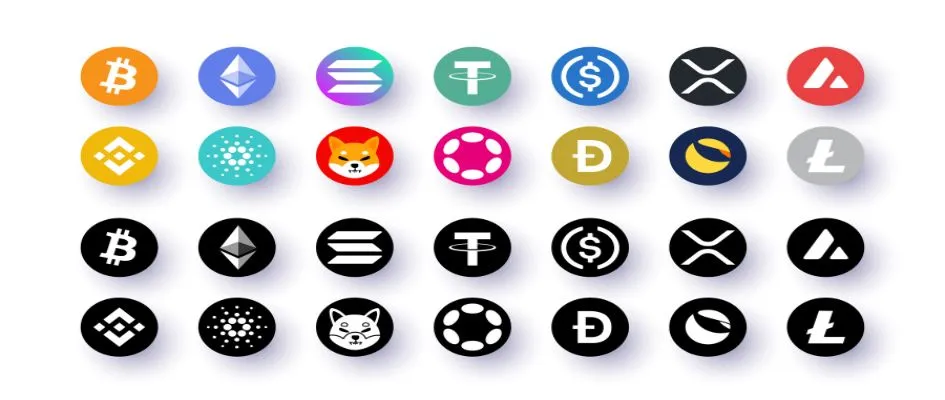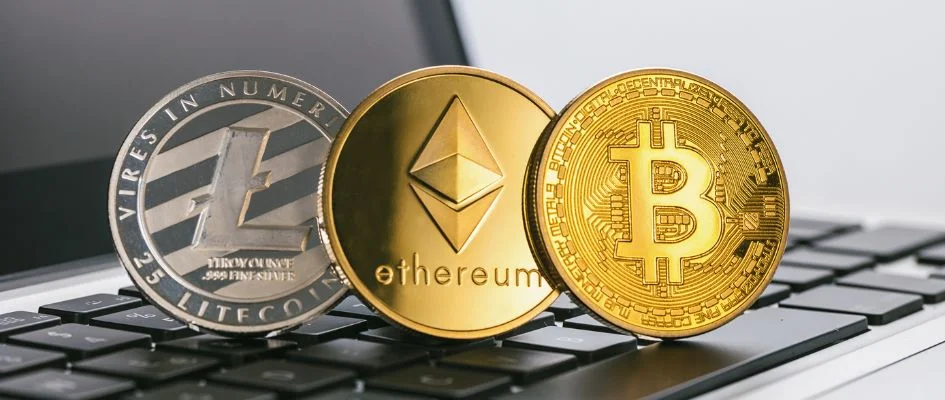Research
.jpg) Blockchain Technology - A Boon in Doing Transactions Securely
Blockchain Technology - A Boon in Doing Transactions Securely
A blockchain is a digital record which is chronologically updated and cryptographically protected. It can also be seen as a linear chain of blocks, and each block contains information. Each and every block is connected to other blocks where the entire network is shared within all the participants. The linear chain of blocks is also known as a ledger, which is used for recording and housing data that is being transferred between the participants. Each participant in the shared network can see the original data.
There are various advantages of blockchain technology-- Totally decentralized - No authority can control the network for any agenda as the technology is totally decentralized. It is not at all stored at a single point which enables high security and fair system of distribution.
- Complete Immutability - It is impossible to edit, delete or copy once each block has been sealed cryptographically, thus ensuring the complete security of the digital ledger. Due to decentralization feature, failure or error within the system cannot happen. With this immutability, the network is deemed reliable because there is an absence of any weak point for hacking purposes. Complete encryption is followed because each transaction requires a digital signature.
- Convenient - Blockchain has competent integration capabilities which describe the technology as fast and easy to use. The money or data flow is faster due to the absence of any middleman. Financial institutes, such as banks, have defined hours of working where physical transactions can be conducted at that time only. Online banking facility of banks, although working day and night, are not allowed on some holidays in many countries. But, if we take the case of blockchain technology, it operates 24x7, which means at anytime and anywhere.
- P2P network - Peer-to-peer network is a critical and integral part of blockchain technology. With information being exchanged continuously and constant recording within network participants, it results in an increasing number of participants and network becomes stronger. The computer system is referred to as "peer" in the blockchain network. A peer helps to provide part of resources like bandwidth, disk storage and processing speed to other users without any central coordination on any hosts or servers.
- Open source software - Due to open source software, blockchain technology has enhanced transparency. There are very less entry barriers which lead to better developer base. The software can be shared freely, developed for overall community good and is not an individual's or single organization's property that aims to make a profit. All the bottlenecks and chokepoints are removed in the development process of open source software because no single company or individual develops, owns or sells the software.
.jpg) What is the Cryptocurrency Exchange?
What is the Cryptocurrency Exchange?
Exchanges of cryptocurrencies are the forum for trading of other cryptocurrencies for commodities, digital and fiat currencies. Cryptocurrency exchanges operate as a broker between a customer and a seller and make money through commissions.
How do cryptocurrency markets work?The decentralization of crypto-monetary markets ensures that the markets are not issued or sponsored by a single body like the government. Instead, they pass across a computing network. But cryptocurrencies can be purchased and exchanged, and deposited in 'wallets' via exchanges. Cryptocurrencies, as compared to standard currencies, function as a joint, blockchain-stored digital record. If users need encryption units to be passed to another user, they can give them their digital wallet. When checked and applied to the blockchain through a method called mining, the transaction shall be considered complete. It is also what commonly produces fresh cryptocurrency tokens.
BlockchainA standard digital data registry is a blockchain. It is the transaction background for a cryptocurrency unit for cryptocurrencies. It demonstrates how ownership across time has changed by documenting transactions in blocks, and blockchain operates with the inclusion of new blocs on the chain front.
Bying and selling cryptocurrencyYou purchase the coins directly as you buy bitcoins from an exchange. The exchange account must establish the entire value of the asset set up to open an account, and the cryptocurrency tokens must store in the pocket before you are ready for sale. Exchanges have their steep learning curve since you need to comprehend the technology and learn how to understand the details. Many exchanges often have limited amounts to deposit, while accounts can be very costly to maintain.
New Crypto ListingStart-ups focused on cryptocurrencies are liable for listing on cryptocurrency trading exchanges. It forms the world's largest forum for volume crypto trading. Besides innovative products and services focused on cryptography, crypto and blockchain businesses are growing by listed in a cryptocurrency exchange. Companies also decide to study and prepare legal advice on their tokens to conform to crypto-exchanges' listing standards. This legal opinion explains basically whether the token is eligible as a utility token or as a protection token, based on which decision is made on the list.
Bitcoin ExchangeAs is widely known, crypto-currency is a digital or an encoded virtual currency. It is almost difficult to counterfeit or double expend since it is safe under a cryptographic system. In contrast with the standard currency, a crypto-currency network is typically decentralized and is built on blockchain technologies. Blockchain is a public ledger that is applied by a separate distributed computer network. It, therefore, functions almost entirely. It is necessary to remember that as it is not centralized, no government entity released Cryptocurrency. It is relatively resistant to central government interference or coercion. The Cryptocurrency Exchange is a forum for consumers to exchange or sell cryptocurrencies.
Cryptocurrency Exchange ListingThe presence of exchange for cryptocurrencies is a difficult task because rigorous due diligence is needed in advance. The main requirement is to build a welcoming group and a support network that helps shape the right team to get the wanted rewards. The due diligence involves reviewing company records such as the whitepaper and the arrangement with investors and the legal opinion that this token is a valuable token for comprehensive explanations.
Crypto Exchange TypesTrading platforms are the web pages linking purchasers and sellers to each exchange and charging fees. Direct trade includes specific channels that share individuals for an immediate individual. This mechanism involves people from different parts of the world who use their bank accounts to exchange currencies. Direct trade exchanges do not offer a stable stock price since each retail's exchange prices are calculated. Brokers are the online pages to purchase the Cryptocurrency of anybody at a price fixed by the broker. They are like foreign merchants. They are similar.
Advantages of Centralized Cryptocurrency Exchanges- User-friendly - Central exchanges are a familiar and welcoming way for inexperienced investors to transact and invest in cryptocurrencies. Instead of using complicated crypto wallets and peer-to-peer transfers, users of centralized exchanges can log into their accounts, view their balance sheets, and execute transactions through apps and web sites.
- Reliable - In terms of trading and trading, organized trade provides a further degree of security and efficiency. Centralized exchanges provide greater convenience by facilitating the transaction through an established, centralized website.
- Hacking risk - Centralized exchanges are operated by corporations responsible for their clients' portfolios. Huge trading currently accounts for billions of Bitcoin dollars, rendering them a priority for hackers and robbery.
- Transaction fees - Centralized exchanges also charge for their services, and convenience, high transactions, exceptionally high when dealing in large numbers, unlike peer-to-peer transactions.
Popular News

Layer 2 Blockchain & The Future of Decentralized Ecosystems

Introducing Advance Blockchain (ABC20) — The Future of Decentralized Innovation

WhiteBitcoin Idea to Advance Blockchain (ABC20) Infrastructure (2018 - 2026)

WhiteBitcoin (WBTC) — Official Christmas & New Year Update

Belpay Exchange Marks Its 7th Establishment Day with Major Announcements and Network Expansions

WhiteBitcoin (WBTC) Major Update Announced on June 22, 2025
.png)
WhiteBitcoin(WBTC) – Celebrating 7th Years of Success & a Future of Growth!
.webp)
XRP News Today: Amid the volatility of the cryptocurrency market, Ripple awaits the SEC's next move.
.webp)
Analyst: Spot Ether ETFs Debut Strong, But They Fall Short of Bitcoin ETFs

Important Bitcoin (BTC) Development Solana's (SOL) Next Resistance Unveiled Ahead of $70,000, XRP $1 Rally: Is This Goal Achievable?

What Are VIP Web3 Wallet?

What Is Web3 and Why Does It Matter?

Cryptocurrency Price Today: Bitcoin Exceeds $70,000, with Memecoin dogwifhat Emerging as the Leading Gainer

Cryptocurrency Price Today: Ethereum Climbs Above $3,000, Market Cap Approaches $2 Trillion

Cryptocurrency Price Today: Bitcoin Exceeds $52,000 Ahead of the Halving Event

Celebrating 6 Years of Progress and Growth: Celebrating The 6th Anniversary of WhiteBitcoin (WBTC)

Cryptocurrency Price Today: Bitcoin Holds, Flare Gains Almost 35%

Cryptocurrency Price Today: Brief Rally Is Caused By Erroneous US SEC Tweet About Bitcoin Spot ETFs

Cryptocurrency Price Today: At $43,000, Bitcoin Stays Stable, With Celestia Becoming the Top Gainer

Cryptocurrency Price Today: Beginning the New Year hovering around $42,000, FTX Token emerges as the biggest loser

India bans URLs of 9 crypto exchanges, including Binance, for non-compliance with anti-money laundering laws

Cryptocurrency Price Today: Bitcoin Holds at $43,000, ORDI Increases by Almost 55%

Cryptocurrency Price Today: For the second straight day, SEI is the top gainer as Bitcoin falls below $43,000

Crypto Week Ahead: Bitcoin-Compatible The Argentinean President Javier Milei's victory brings about a much-needed price rally
.webp)
Ethereum, Bitcoin, and Other Popular Coins Drop in Value
.webp)
As the Fidelity ETF Amendment Spurs Bullish Sentiment, Bitcoin Approaches $29K
.webp)
Ethereum, Bitcoin, and Other Popular Coins Drop in Value

PEPE is the biggest loser when Bitcoin Falls Below $28,000
.webp)
Bitcoin Cash surpasses $1,600 as Ethereum crosses it
.webp)
Top Coins Like Bitcoin, Ethereum, and Others Land In Reds
.webp)
Over the weekend, Bitcoin remains below $27,000
.webp)
The top gainer as Bitcoin drops below $27,000 is Terra Classic
.webp)
Bitcoin Surpasses $27,000, with Flare the Top Gainer
.webp)
Axie Infinity overtakes all other gainers as Bitcoin holds above $26,000

Axie Infinity overtakes all other gainers as Bitcoin holds above $26,000
.webp)
Bitcoin is still trading below $26,000, while Astar is the top gainer

After a court supports a grayscale ETF, bitcoin increases
.webp)
When Bitcoin falls below $26,000, all altcoins experience a downturn. Top Gainer for Bitcoin
.webp)
Top Coins Land In The Red But Bitcoin Remains Above $27,000
.webp)
Top Coins Bitcoin, Ethereum, and Others Trade Downward, with dYdX Becoming the Top Gainer
© 2026 WBTC Price All Rights Reserved.

-min.jpg)
 (1)-min.jpg)
-min.jpg)
